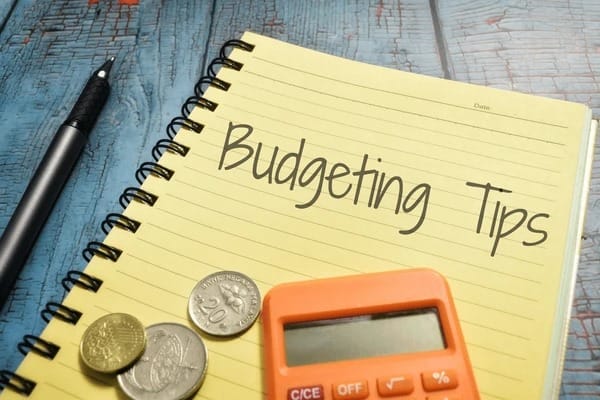Budgeting Tips
Meta Description
Discover smart budgeting tips that actually work. Learn how to manage your money, cut unnecessary expenses, and start saving with simple, effective strategies.
Proven Budgeting Tips That Actually Work: Master Your Money Today

Are you tired of struggling with money every month? Do you find it hard to save or reach your goals? Don’t worry mastering your money doesn’t have to be hard. With a few smart budgeting tips, you can start making real progress toward a better financial future. Whether you want to pay off debt, save for something big, or simply stop worrying about bills, these tips will help you take control.
Budgeting Tips for Beginners: Start Smart with Your Money

If you’re just starting out, these simple steps will help you build a strong budgeting foundation.
Set Clear Financial Goals
Start by deciding what you want to achieve with your money. Do you want to save for a vacation, pay off debt, or build an emergency fund? Having clear goals gives you motivation and keeps you focused.
Track Every Expense
Write down everything you spend for a month. You can use an app, spreadsheet, or just a notebook. This helps you see where your money goes and find areas to cut back.
Create a Realistic Budget
Use your spending data to make a budget that fits your life. Cover essentials first—like rent, food, and bills. Then plan for savings and a little fun. Make sure it’s flexible so you can stick to it.
Automate Your Savings
Set up automatic savings on payday. Even saving a small amount regularly adds up. It’s a stress-free way to build a habit that pays off.
Budgeting Tips for Monthly Planning and Expense Tracking

Monthly planning helps you stay in control and avoid overspending.
Create a Comprehensive Monthly Budget
According to University of Pennsylvania, List all your income and expenses. Use the 50/30/20 rule:
50% for needs (like rent and food)
30% for wants (like eating out)
20% for savings and paying off debt
Adjust this rule based on what works for you.
Track Every Expense Diligently
Keep track of every purchase. Use a spreadsheet or app to see your spending habits clearly. Check your budget every week and adjust when needed.
Implement the Envelope System
Use cash envelopes for things like eating out or entertainment. When the money in the envelope is gone, you stop spending in that category. It helps you stay disciplined.
Smart Budgeting Tips with Money-Saving Hacks

Try these smart hacks to stretch your money further without feeling deprived.
Track Every Penny
Don’t ignore the small stuff—it adds up! Keep an eye on every dollar. It helps you stay aware and in control.
Embrace the 50/30/20 Rule
This budgeting tip is popular because it’s simple and effective. Divide your money smartly and stick to the plan.
Automate Your Savings
Set up savings to happen automatically. This way, you save money without having to think about it.
Utilize Cash Envelopes
Physically seeing and handling your spending money can help reduce impulse buys. Stick to your envelope limits and avoid overspending.
Budgeting Tips That Support Frugal Living

Save more by making smarter choices in everyday life.
Embrace the Power of Meal Planning
Planning meals saves money and reduces food waste. Make a weekly menu, stick to your grocery list, and cook at home more often.
Master the Art of Secondhand Shopping
Buy used items whenever you can. You’ll save a lot on clothes, furniture, and more. Check thrift stores, consignment shops, and online marketplaces.
Optimize Your Energy Usage
Cut your utility bills by being more energy-efficient. Use LED bulbs, unplug devices, and make the most of natural light.
Budgeting Tips with Helpful Tools and Apps

Use modern tools to make budgeting easier and more effective.
Smart Budgeting Apps
Apps like Mint, YNAB, and Personal Capital make it easy to track your spending, set goals, and manage your money in real time.
Automated Savings Tools
Apps like Acorns and Digit save money for you automatically, based on your spending. It’s a great way to save without effort.
Expense Tracking Spreadsheets
Prefer old-school methods? Use a spreadsheet to create your own budget. Free templates are available on Excel or Google Sheets.
Budgeting Tips for Financial Planning and Emergency Preparedness

Prepare for the future with a solid plan and safety net.
Create a Comprehensive Financial Plan
Know where you stand financially. List your income, expenses, and debts. Then create a plan to save, reduce debt, and invest wisely.
Build an Emergency Fund
Save at least 3–6 months of expenses in a separate account. It’s your safety net if something unexpected happens.
Diversify Your Savings Strategy
Use different types of savings accounts, like high-yield savings or CDs, to grow your money safely and steadily.
Conclusion
Taking control of your money is possible with the right budgeting tips. By setting goals, tracking spending, using helpful tools, and saving regularly, you can create a secure financial future. Budgeting gets easier with practice, so stay patient and consistent. Every small win adds up, and soon you’ll see big changes in your finances. Start today—and take that first step toward financial peace of mind.
